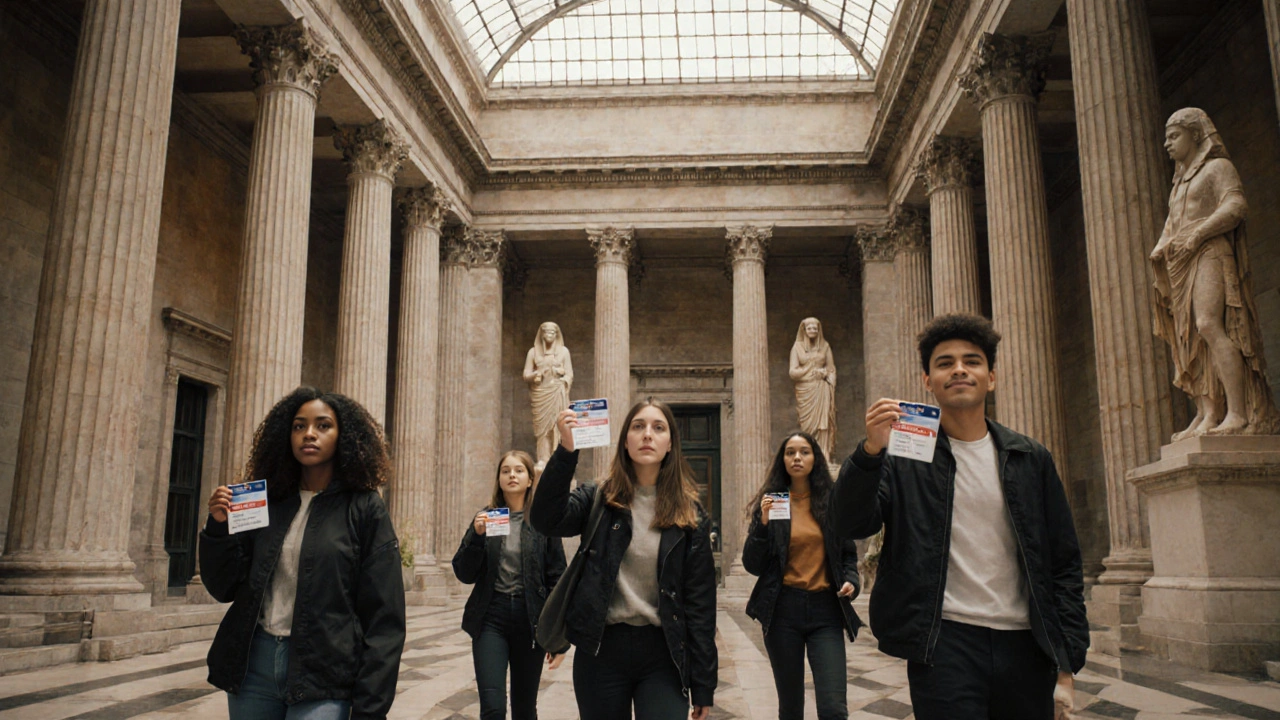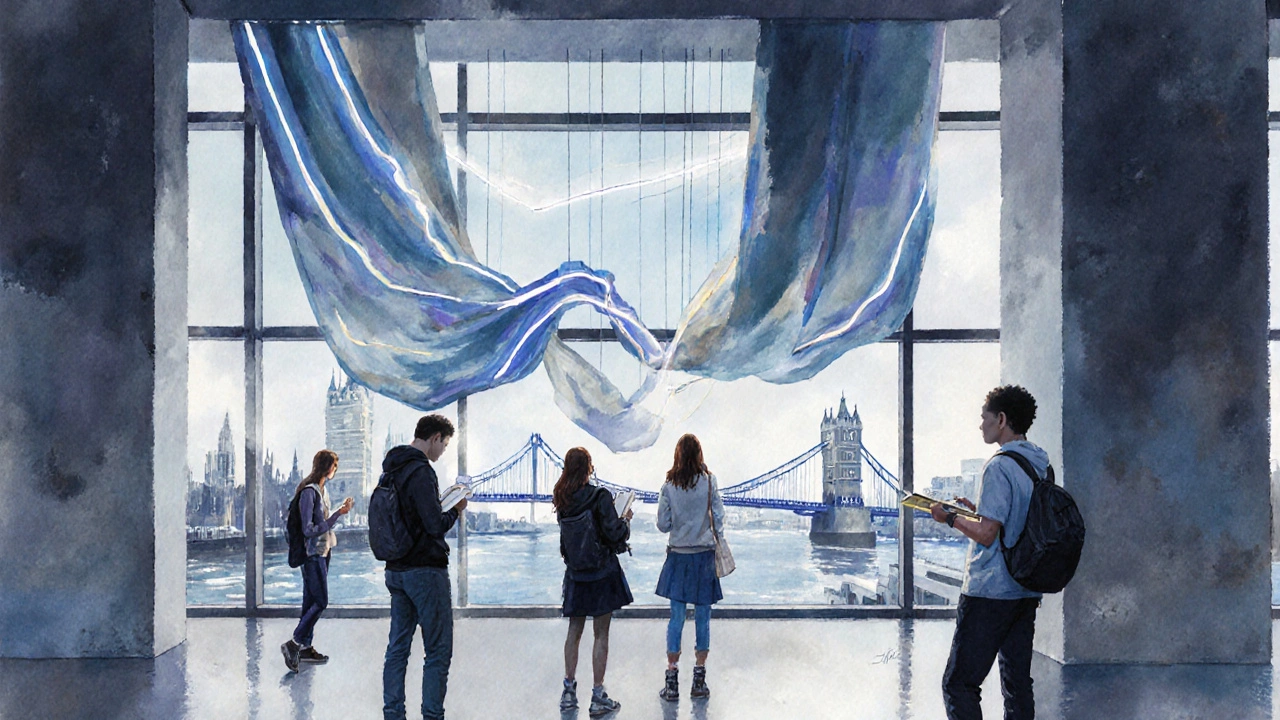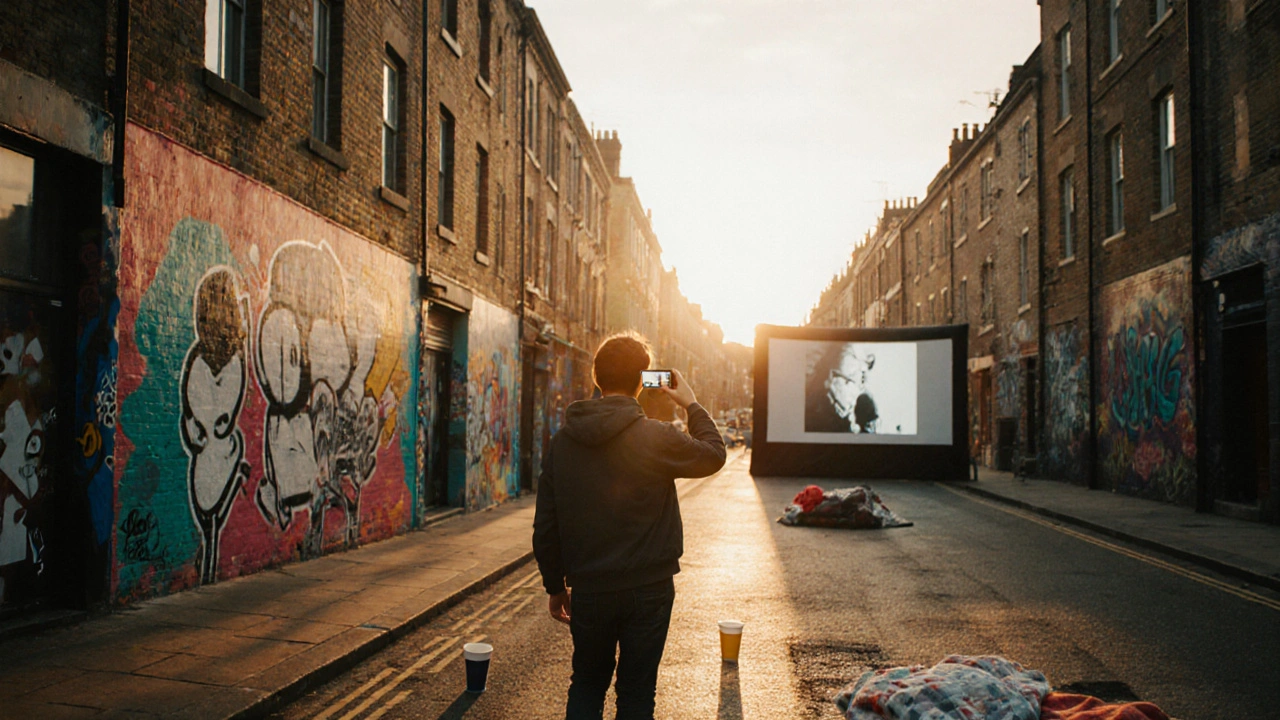
Studying in the UK doesn’t mean you have to break the bank to enjoy culture, art, or live events. Across London, Manchester, Edinburgh, Birmingham, and Bristol, some of the best entertainment is completely free - especially if you’re a student. You don’t need a fancy budget or a credit card with a high limit. Just your student ID, a bit of planning, and curiosity.
UK Museums That Don’t Charge Students
The UK has one of the most generous museum policies in the world. Major national museums in London - like the British Museum, the National Gallery, and the Victoria and Albert Museum - have never charged admission. Not for locals. Not for tourists. And definitely not for students. All you need is to show your valid student card at the entrance. No ticket needed. No reservation required. Walk in, explore ancient Egyptian artifacts, Renaissance paintings, or fashion from the 1800s, and leave without spending a penny.
Outside London, the National Museum of Scotland in Edinburgh and the Manchester Art Gallery also offer free entry year-round. The Tate Modern and Tate Britain are free too, with rotating contemporary exhibits that change every few months. In 2024, Tate Modern alone welcomed over 4.2 million visitors, nearly half of them under 25. Most of those were students using their IDs to get in.
Some smaller museums, like the William Morris Gallery in Walthamstow or the Hepworth Wakefield, are also free. These places often host student-only events: late-night openings, curator talks, or workshops on printmaking and sculpture. Check their websites before you go - many list student events under a “What’s On” tab.
Art Galleries That Welcome Students for Free
While museums focus on history, galleries are where today’s art lives. Many university-affiliated galleries are open to the public and always free. The Hayward Gallery in London, run by the Southbank Centre, has no entry fee and features bold, experimental installations. The Whitechapel Gallery, in East London, has hosted early shows by Frida Kahlo and Jackson Pollock - and still doesn’t charge.
University galleries like the Ruskin School of Art in Oxford or the Henry Moore Institute in Leeds are open to everyone. You might even find student exhibitions there - work made by peers just like you. It’s inspiring, and it’s free. Some galleries offer student-led tours on weekends. Just show up 10 minutes before the scheduled time. No booking needed.
Don’t overlook public art. Cities like Bristol and Liverpool have outdoor sculpture trails. Bristol’s Street Art Tour takes you past Banksy’s original pieces - and it’s completely free. You can download a map from the city’s tourism site or just wander the streets of Stokes Croft and St. Nicholas Market. No ticket. No fee. Just your eyes and your phone camera.

Free Events for Students in UK Cities
It’s not just museums and galleries. Cities across the UK host hundreds of free events every month - music, film, talks, and festivals - all open to students.
In London, the Southbank Centre’s Free Festival runs every summer, with live jazz, poetry slams, and dance performances on the riverside. Many events are held on weekends and start at 5 p.m. - perfect after class. Edinburgh’s Fringe Festival in August has dozens of free fringe shows, especially in the Grassmarket and Cowgate areas. Look for “Pay What You Can” signs - many performers welcome donations, but you’re not required to give anything.
Manchester’s Free Fringe at the Royal Exchange Theatre offers stand-up comedy, theatre, and spoken word. Birmingham’s Moseley Folk Festival in September has free stages with local bands. Even smaller cities like Norwich and Brighton host weekly free cinema nights in parks during summer. Bring a blanket, some snacks, and your student card. You’re in.
Libraries are another hidden gem. The British Library in London offers free talks by authors, historians, and scientists. You can attend a lecture on climate change or Victorian literature without signing up. Glasgow’s Mitchell Library runs weekly film screenings and writing workshops - all free for students. These aren’t just quiet reading rooms. They’re cultural hubs.
How to Find Free Stuff (Without Getting Overwhelmed)
There’s so much free stuff in UK cities that it’s easy to miss. You don’t need to check 20 different websites. Here’s how to find the best events without wasting time:
- Sign up for your university’s student union newsletter. They send weekly updates on free gigs, exhibitions, and workshops.
- Use Time Out London or What’s On in Manchester - both have free events filters.
- Follow local councils on Instagram. Cities like Bristol and Cardiff post free events in their parks and libraries.
- Check Eventbrite and filter by “Free” and “Student.” Many events are listed here, even if they’re not widely advertised.
- Join Facebook groups like “Free Events in Edinburgh” or “Student Nights in Brighton.” People post last-minute invites to gallery openings or acoustic gigs.
Pro tip: Set up Google Alerts for “free events [your city]” and “student discounts UK.” You’ll get one email a week with new opportunities.

What You Need to Know Before You Go
Free doesn’t always mean no rules. Here’s what to keep in mind:
- Always carry your valid student ID. Some places will let you in without it, but others won’t. It’s not worth the risk.
- Some museums have timed entry slots for crowds - even if it’s free. Book ahead on their website to avoid long lines.
- Don’t assume all exhibitions are free. Special exhibitions (like “Van Gogh: The Lost Sketchbooks”) often cost money. Stick to permanent collections.
- Free events sometimes have limited space. Arrive early, especially for popular talks or live music.
- Some places offer free entry only on certain days. The National Portrait Gallery, for example, is free every day, but the Science Museum has free entry only for its permanent galleries - not the IMAX.
Also, remember: student discounts aren’t just for students. If you’re on a student visa, you’re still eligible. International students get the same access as UK students. Just show your university card - no passport needed.
Why This Matters Beyond Saving Money
Free cultural access isn’t just about saving £15 on a museum ticket. It’s about connection. Walking through the British Museum’s Egyptian gallery, you’re not just looking at artifacts - you’re seeing 5,000 years of human history. Listening to a free poetry reading in a library basement, you’re hearing voices you wouldn’t find on Spotify. These experiences shape how you think, how you write, how you see the world.
Students who regularly visit free cultural spaces perform better in essays, develop stronger critical thinking, and report higher levels of well-being. A 2023 study by the University of Warwick found that students who visited at least one free cultural venue per month were 37% more likely to feel engaged with their studies.
It’s not a luxury. It’s part of your education.
Do international students get free entry to UK museums and galleries?
Yes. International students with a valid university-issued student ID get the same free access as UK students. No passport or visa check is required - just show your student card at the entrance. This applies to all national museums and most public galleries.
Are there free events during the winter months?
Absolutely. While summer has more outdoor events, winter brings free indoor options. Many libraries host film nights, storytelling sessions, and writing workshops. Cities like Glasgow and Newcastle offer free Christmas markets with live music. The Southbank Centre in London runs free winter festivals with theatre and dance. Check university event calendars - they’re active all year.
Can I bring friends who aren’t students to free events?
It depends. Most museums and galleries allow non-students to enter for free too - the UK’s policy is open to everyone. But some events, like student-only gallery tours or university-led workshops, may require proof of enrollment. Always check the event details. If it says “open to all,” your friends are welcome. If it says “student only,” they won’t be allowed in.
Do I need to book tickets for free museums?
For permanent collections, no. You can just walk in. But for popular museums like the British Museum or Tate Modern, timed entry slots are often required to manage crowds. These are free to book - just go to their website, pick a date and time, and print or show the QR code on your phone. It takes two minutes and saves you an hour in line.
What if my student ID is expired?
You won’t be allowed in. Most venues require a current, valid student ID with a photo and university logo. If yours is expired, visit your student union office - they can issue a temporary pass or print a replacement. Some universities also offer digital IDs through their app. Don’t rely on an email or a screenshot - physical cards are preferred.